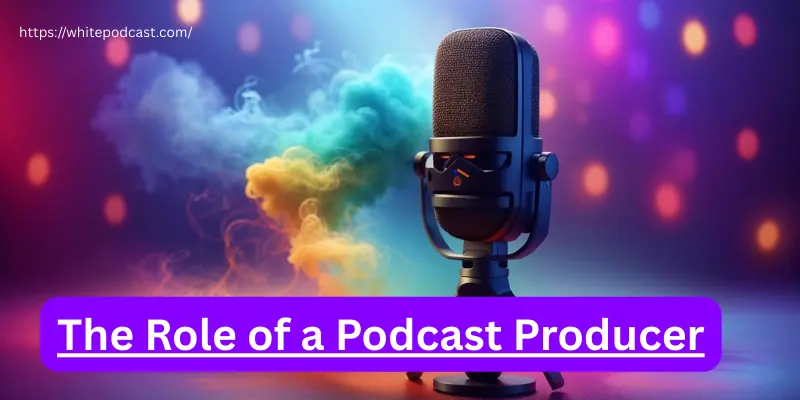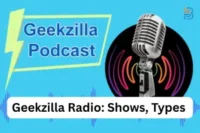What Does a Podcast Producer Do? (Complete Guide)
Published: 21 Sep 2025
Podcasting has grown into a powerful medium for sharing stories, knowledge, and entertainment. Behind every successful show is someone working hard to make everything run smoothly—the podcast producer. But what exactly do they do, and why are they so important? Let’s break it down in simple terms.

The Role of a Podcast Producer
A podcast producer is like the project manager of a podcast. They coordinate the entire process—from planning and recording to editing and publishing. Unlike a host, who focuses on content delivery, the producer ensures the final product is polished, professional, and ready for listeners.
Key responsibilities include:
- Managing schedules and deadlines.
- Supporting the host and guests.
- Overseeing production quality.
- Ensuring smooth publishing. types of interview podcast
📝 Core Responsibilities of a Podcast Producer
Producers wear many hats to keep the podcast running.
Some of their main duties are:
- 🎧 Podcast editing and sound quality → removing background noise, adjusting levels, and adding music.
- 🎤 Managing podcast guests → handling invitations, scheduling, and preparing questions.
- 📅 Scheduling podcast episodes → keeping the show consistent and on time.
- 🛠️ Handling technical aspects like microphones, recording software, and hosting platforms.
🎧 Duties of a Podcast Producer in Action
A typical producer doesn’t just sit behind the scenes—they actively shape the show.
Here’s what they might do in a single episode cycle:
- Plan content with the host.
- Prepare scripts or outlines.
- Run test recordings to check audio.
- Edit raw files into a clean, engaging episode.
- Upload and publish on platforms like Spotify or Apple Podcasts.
Why a Podcast Production Manager Matters
Many creators think they can do it all, but having a producer makes a big difference.
Benefits of working with a producer:
✅ Higher-quality audio and editing.
✅ More consistent episode releases.
✅ Reduced stress for the host.
✅ Professional touch that attracts sponsors. Podcast Meaning in Hindi with Example: जानिए Podcast का मतलब
Skills Every Podcast Producer Needs
To succeed, a podcast producer needs a mix of technical and soft skills. It’s not just about editing—it’s about managing people and processes.
Key skills include:
- 🎧 Audio production – Knowledge of tools like Audacity, Adobe Audition, or GarageBand to polish episodes.
- 📝 Content planning – Ability to outline episodes, prepare scripts, and guide hosts through recordings.
- 📅 Time management – Keeping episodes on schedule for consistent publishing.
- 💬 Communication – Coordinating with hosts, guests, and sometimes sponsors.
- 🔎 Attention to detail – Ensuring there are no errors, awkward silences, or technical glitches.
The Workflow of a Podcast Producer
Podcast production doesn’t happen overnight—it follows a clear workflow. Let’s look at a typical process a
Post-Production
- Editing audio files for clarity and flow.
- Adding intro/outro music or ads.
- Normalizing volume levels.
Publishing
- Uploading episodes to hosting platforms.
- Writing show notes and descriptions.
- Ensuring distribution across Spotify, Apple Podcasts, and Google Podcasts.
Promotion & Analysis
- Creating audiograms or clips for social media.
- Tracking analytics to see what content performs best.
Podcast Producer vs. Host: What’s the Difference?
Many beginners confuse the host with the producer, but they play very different roles.
Host
- The “voice” of the show.
- Engages the audience with storytelling.
- Conducts interviews and drives conversations.
Producer
- Works behind the scenes.
- Handles scheduling, technical setup, and editing.
- Ensures the host sounds professional and episodes stay consistent.
👉 Think of it this way: the host is the star on stage, and the producer is the director backstage. Both are essential for a successful podcast.
Career Opportunities for Podcast Producers
As podcasting continues to grow, the demand for producers is rising. Brands, media companies, and influencers are all starting shows and need professionals to manage them.
Where podcast producers can work:
- 🎙️ Independent podcasts – Helping small creators grow their shows.
- 🏢 Media companies – Producing large-scale, professional podcasts.
- 📈 Corporate podcasts – Assisting businesses that use podcasts for branding.
- 🧑🎓 Educational podcasts – Supporting schools, universities, and online courses.
Earning potential:
- Beginner producers might earn $20–$30 per hour.
- Experienced producers with editing + management skills can charge $50–$100 per hour or even more.
Why Hiring a Podcast Producer Is Worth It
Many creators start off doing everything themselves, but as a show grows, the workload becomes overwhelming. This is where a podcast producer makes the difference.
Benefits of hiring a podcast producer:
✅ Professional sound quality improves listener retention.
✅ Episodes get released on time, building audience trust.
✅ Hosts can focus on content instead of technical details.
✅ Better organization leads to more opportunities for growth.
If you’re serious about podcasting, working with a producer can help your show stand out from the millions of podcasts available today.
Final Thoughts
So, what does a podcast producer do? They are the backbone of a podcast—handling planning, recording, editing, and publishing. By taking care of technical and organizational details, producers ensure that every episode sounds great and reaches listeners on time.
A) Editing and improving sound quality 🎧
B) Scheduling guests and episodes 📅
C) Hosting the show and interviewing guests 🎤
D) Writing show notes and uploading episodes 📝
👉 Answer: C) Hosting the show and interviewing guests.
That’s the host’s role, while the producer works behind the scenes to manage production.
Not always. If you’re starting out, you can manage editing and publishing yourself. But as your show grows, a producer saves time and ensures quality.
Yes. Many small creators act as both. However, balancing both roles can be overwhelming, which is why larger shows often hire dedicated producers.

- Be Respectful
- Stay Relevant
- Stay Positive
- True Feedback
- Encourage Discussion
- Avoid Spamming
- No Fake News
- Don't Copy-Paste
- No Personal Attacks

- Be Respectful
- Stay Relevant
- Stay Positive
- True Feedback
- Encourage Discussion
- Avoid Spamming
- No Fake News
- Don't Copy-Paste
- No Personal Attacks






